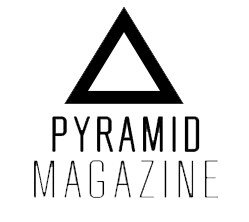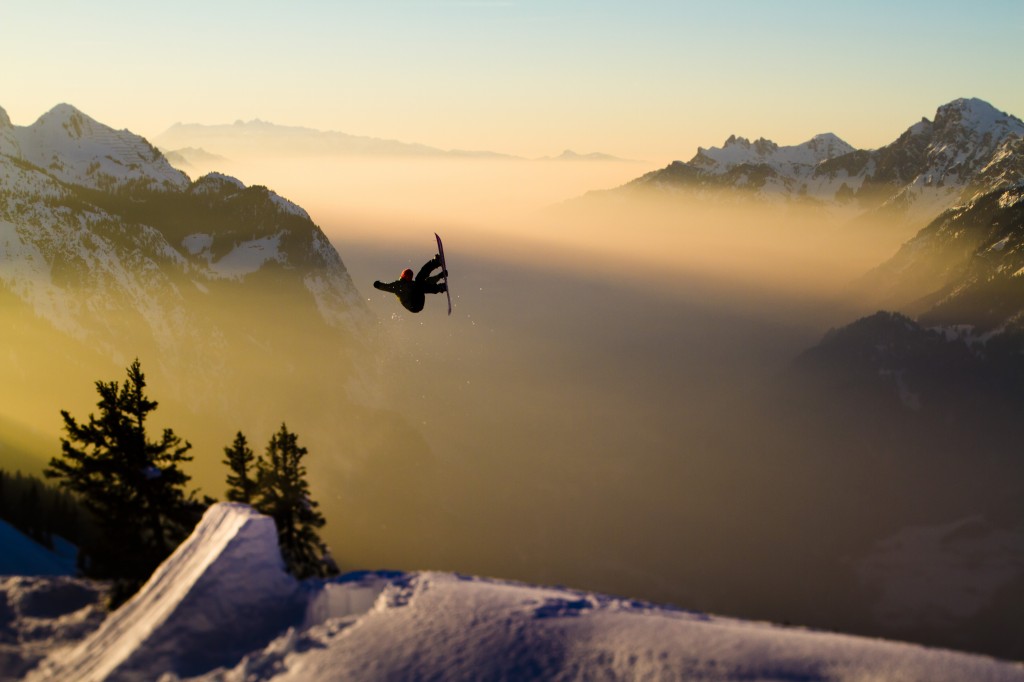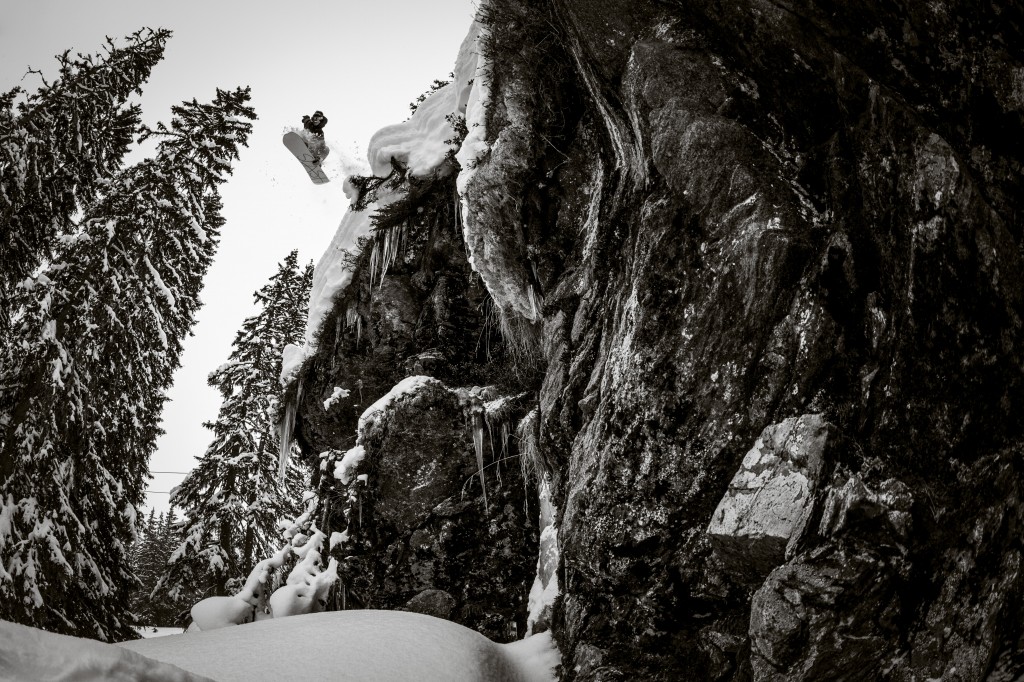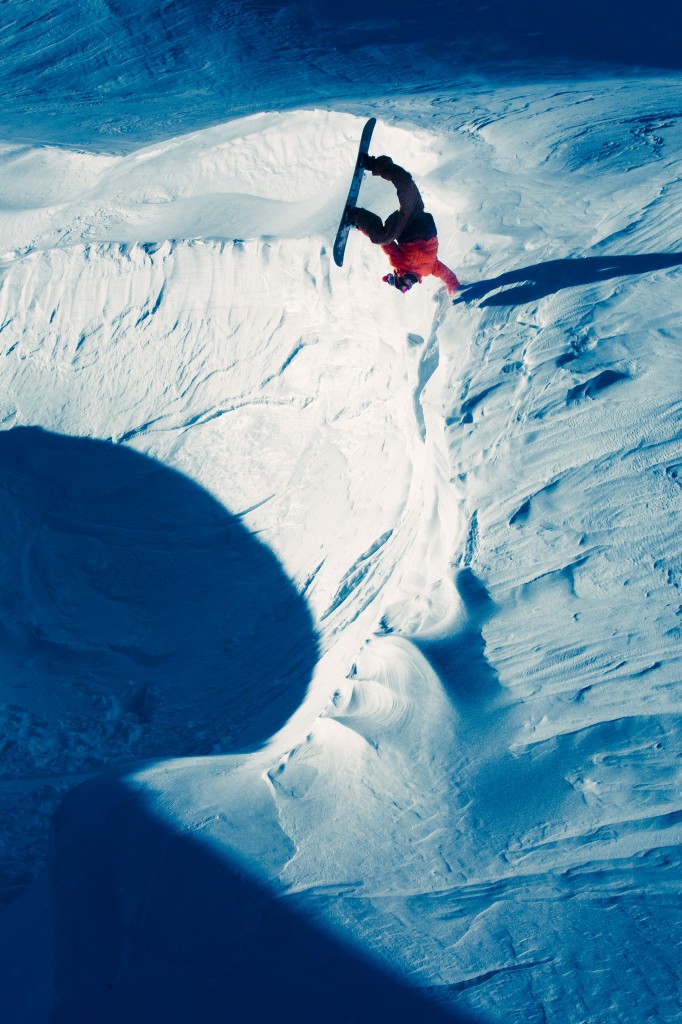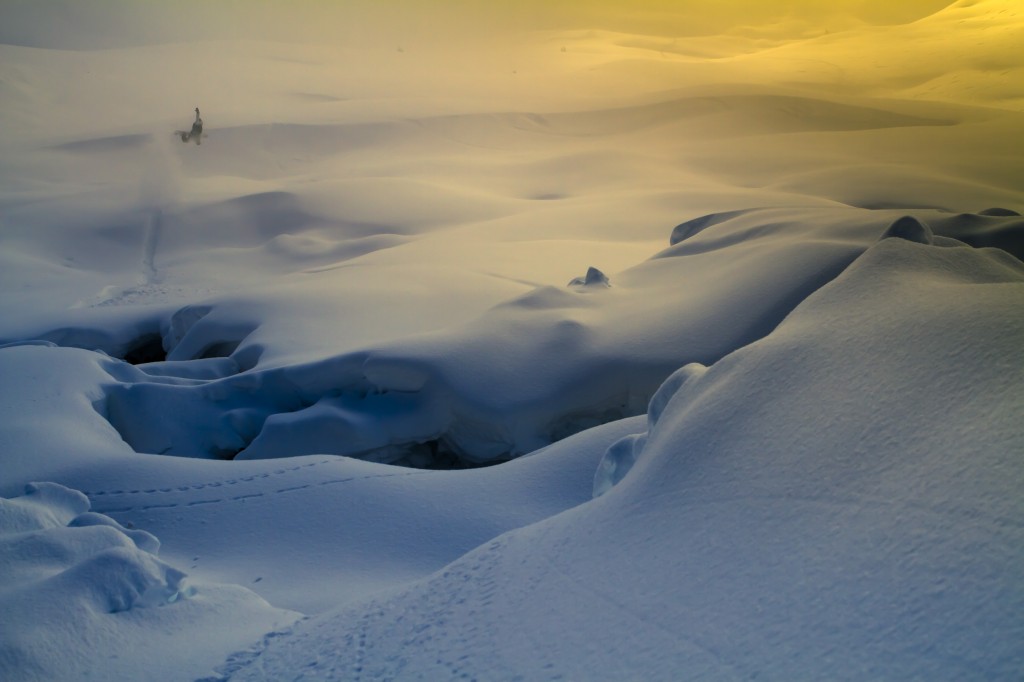Photographers in our digital age are one a penny, with cameras so accesible now, many people buy a camera and call themselves photographers. Only a selected few have the skills to make photography their full time occupation though and even fewer become as well known as their pro rider counterparts.
Cyril Müller has been shooting for over 15 years and works with the biggest brands and riders the sport has to offer, here we chat to Cyril to find out more about life as a pro photographer.
What exactly is your job title?
CEO of cyrilphoto enterprises, I´m my own boss so I´ll call it whatever I want it to really.
Before Nike you were shooting for Burton. For many people this would be an ideal job, how did you get started and then employed by Burton?
I was in my early twenties trying to figure out what I want to do. I just quit my studies in architecture after the first year and was working part time at a snowboard store in Zurich to make ends meet, when a friend of mine saw this job posting on the burton homepage. He was looking for an internship for himself and called me up right away: I saw this job posting with burton and thought of you right away, you should check it out! I applied, thinking ´why not? ´, and ended up getting the job. It was like winning the lottery. I had no ties to the industry before and from one day to the other I was right on the middle of it all.
You shoot some of the best riders in the World, is there anyone in particular that you enjoy shooting the most?
I love shooting with all of them, and it´s important too that you´re able to adapt and roll with any crew to get good shots. I really like the different styles and approaches. To point out a few, Gigi for genius, Halldor for working ethic, and Nicolas for style.
Shooting riding all the time obviously has its benefits, what would you say is the most rewarding trip you have been on?
I went on an RV trip to Corsica back in the Burton days with Mikkel Bang, Jack Mitrani, Simon Gruber, Gary Greenshields and Niels Schack – no other trip ever felt less like being at work. We just snowboarded and surfed for 10 days and had the nicest locals showing us around the island, it was definitely all time.
Obviously if a rider doesn’t ride that well you are less likely to get shots, have you ever been sat in the backcountry all day and not got a single useable shot?
That of course can happen, but it´s your job to get something printable out of every day out there, no matter how good the rider or how bad the conditions are. Keeping a good vibe up and being able to turn shit into gold, that´s why your clients want you on the job and not somebody else.
Nowadays it seems web is replacing print media. How does this affect snowboard photographers?
It´s a tough reality out there right now, but I see it as a transition time. There´s less money in print and so it´s harder to get by, but we have this huge opportunity of distribution now. There are some photogs out there with more than 20k followers on instagram, with one post they can reach more people than they did with a printed photo 5 years back – and the brands need to feed those channels, which will create more work for photographers. There will soon be a time when photographers will be paid for exclusivity of their photos online, a thing which is starting to happen more and more already. There will always be a demand for what we do, brands will want the same quality of pictures they requested for print, and we´ll all be fine in the end.
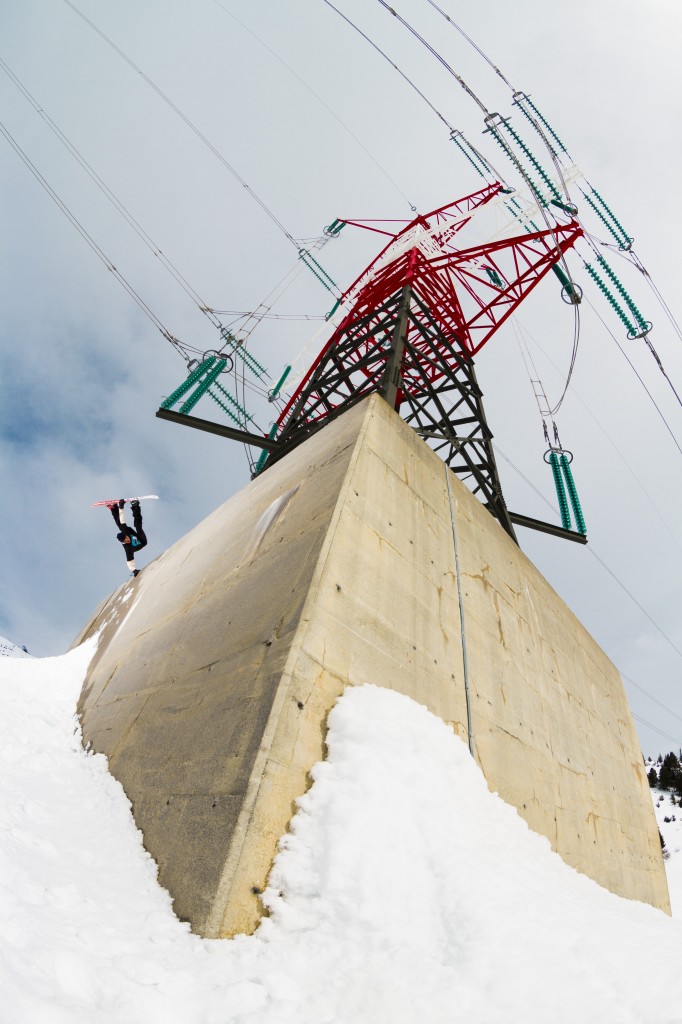
Cyril showing the differences between amateurs and professionals with this peach of a shot of Jed Anderson in Arlberg
Since the digital revolution, cameras are more accessible to the everyday person. What separates a professional photographer from someone else who goes out and buys an expensive camera?
Being professional about what they do will always separated professionals from amateurs, it´s the same in all fields. I love the easy access to photographic gear; it inspires more people to take great photos, it´s very inspiring. But in the end we all have a hammer and a saw at home, that didn´t put the carpenter out of work though.
Digital cameras are now the norm, do you miss the analog days? Do you feel there is a difference between analog and digital photographs?
Anything analog has more imperfection to it, which makes it more accessible and adds feeling. There´s always a crack in anything digital, it´s how the light gets in. But you can add that in post easily with digital, everybody has an iphone app for that. I still enjoy analog photography for my private use, but I’m happy I don´t have to go through the workflow anymore, and so are my clients because they can get results quick if there´s a rush for certain imagery. We´re lucky in snowboard photography because there´s still a market for analog photos, look at the work of Matt Georges or Jerome Tanon for inspiring examples of high standard analog work.
What qualities does someone need to become a professional photographer?
You need to obviously have your photography game on lock, but apart from that, be organised, reply to emails, pick up your phone, never miss a deadline. You should always be on time, never fuck up. Be fun to hang out with, it will get you far. Don´t complain about shit, but share the stoke. Motivate people to give their best, and always be motivated yourself. It takes all the qualities to become a professional in photography as in other fields. The work you do is very important, but your personality and how you deal with things and people is crucial.
Do you still shoot for yourself away from Snowboarding? If so what do you like to shoot?
I shoot still life’s, architecture and portraits for clients outside of snowboarding, I enjoy that a lot, it gives me a different perspective on the snowboard work I do and the people I work with in snowboarding.
As for private stuff, I shoot some vintage analog cameras here and there, but I enjoy seeing a beautiful photo and just record it in my mind just as much.
I know a few people that buy a camera and then suddenly they are spending thousands on new lenses, bodys, lights etc. Is all of that necessary? What are the minimum requirements you need to shoot a great picture?
You can shoot a great picture with a phone and get it printed in national geographic magazine, it has happened before. Starting from there, you will experience limitations at one point, and if you´re feeling like better gear will help you get past those obstacles, it´s worth to invest. But be selective and focus on your skills first, gear second. Nowadays I always tie investments to jobs, say “If I get this assignment, I´ll invest the pay check in gear which helps me to step it up and stoke that client out!”
Check out more from Cyril on his website and give him a follow on Instagram @cyrilphoto
